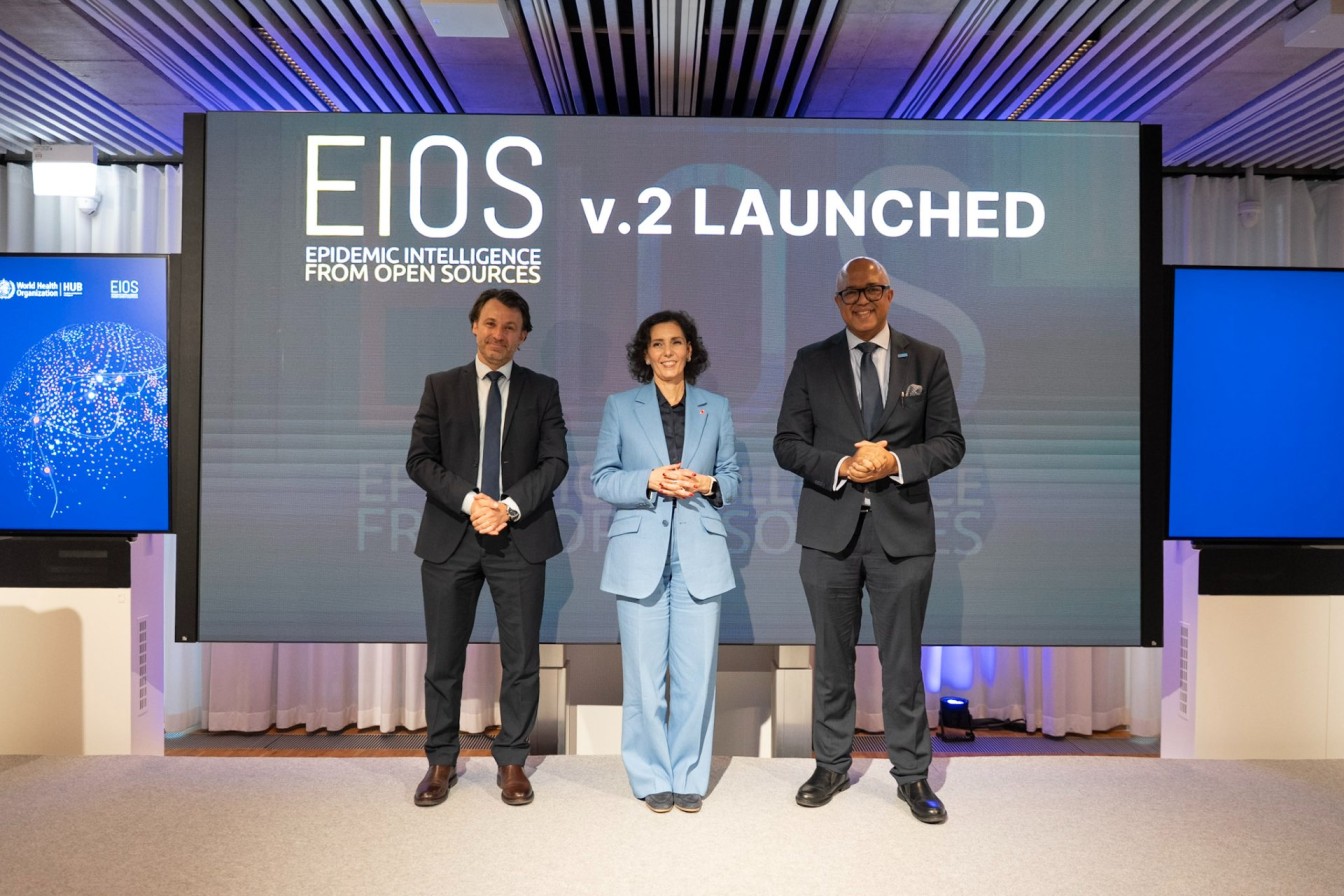The World Health Organization (WHO) has upgraded its global disease surveillance platform with the launch of Epidemic Intelligence from Open Sources (EIOS) 2.0, an advanced, AI-powered system designed to detect and monitor public health threats in real time.
Hosted at the WHO Hub for Pandemic and Epidemic Intelligence in Berlin, the upgraded platform marks a major step forward in global health preparedness.
The system now processes a wider range of data sources, including websites, social media, and even transcribed and translated radio broadcasts, allowing for faster and more comprehensive detection of potential outbreaks.
Developed in 2017, the EIOS initiative has grown steadily and is now used by more than 110 WHO Member States and around 30 partner organizations.
The latest version introduces artificial intelligence capabilities, improved functionality, and a simplified multilingual interface to make health intelligence more accessible to non-English speakers and collaborative teams worldwide.
“Today, we are not just celebrating the launch of a new version of a system, we are entering a new phase in how the world collaborates, innovates, and responds to health threats,” said Dr. Chikwe Ihekweazu, Executive Director of the WHO Health Emergencies Programme.
“EIOS 2.0 is our bridge to the future: more open, more agile, and more inclusive.”
The upgrade comes in the wake of recent health crises, including COVID-19, mpox, and avian influenza, which underscored the critical importance of early detection in preventing local outbreaks from becoming global emergencies.
Germany’s Federal Minister of Health, Nina Warken, said the system’s launch represents a milestone in global data-driven health response.
“Better data, better analytics, better decisions. Reliable data and transparent political decision processes are key to building public trust in emergency situations,” she noted.
European Commissioner for Preparedness, Crisis Management and Equality, Hadja Lahbib, emphasized the importance of collaboration in preventing local outbreaks from becoming global emergencies.
“Detecting public health threats early is essential to prevent new and emerging diseases from becoming endemic or escalating into a pandemic,” she said.
WHO will offer EIOS 2.0 as a public good, free of charge to Member States, along with multilingual training and technical support, underscoring its commitment to strengthening global health security and resilience.
